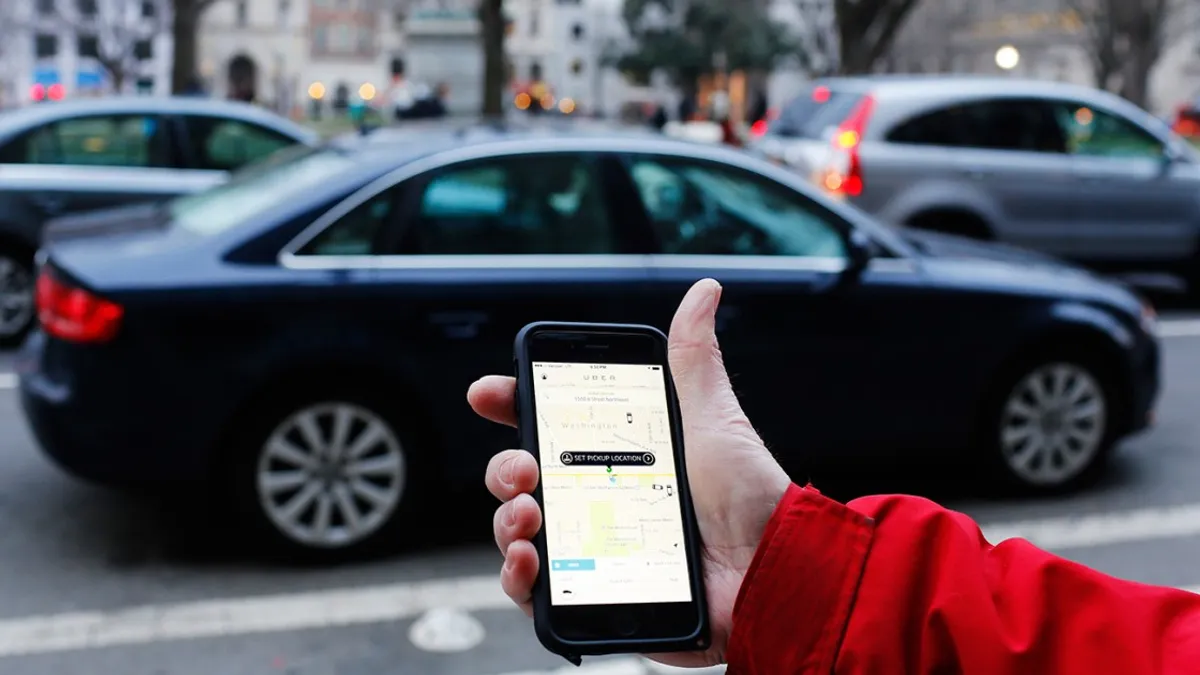Dive Brief:
- An Oakland City Council member wants to impose a per-ride tax on ride-share trips, according to the East Bay Express and others. City leaders have floated the idea for the past three years but no formal action has been taken. Last month, a member of the Board of Supervisors in neighboring San Francisco suggested a similar ride-share tax measure after years of such suggestions from other leaders.
- The Oakland City Council member who proposed the idea wants to turn it into a ballot measure to let voters decide, as does the San Francisco Supervisor.
- Cities are still trying to determine if state law allows them to impose a per-ride tax because the California Public Utilities Commission (CPUC) has nearly exclusive oversight of transportation companies, including ride-share businesses.
Dive Insight:
Ride-share companies have experienced explosive growth since first coming onto the transportation scene about seven years ago. Just as with any new business concept, the industry has evolved since its inception. Part of that evolution is a push by municipalities to tax the businesses to make up for any negative effects leaders say ride-share services cause, such as increased congestion and stress on infrastructure.
For being a state with a reputation for innovation and being a trend-setter, California is behind on the ride-share tax front. Other states and municipalities readily jumped on the bandwagon and are using the funds for a variety of purposes, many of them transportation-related. Chicago bumped up its existing per-ride tax this year by an additional 15 cents to fund transit system safety improvements. Philadelphia has had a tax that, in part, goes toward funding schools. Massachusetts has had a 20-cent per-ride tax that is split among the taxi industry, municipalities and the state transportation fund.
Although cities throughout California, and especially in the Bay Area, have wanted to impose ride-sharing taxes for years, the CPUC's regulations complicate the matter. When the CPUC first passed the measure in 2013, it created a new business category, called a Transportation Network Company, for for-hire transportation businesses that get customers through an app. Each parent operating company — not each individual driver — is required to obtain a license through the CPUC, and drivers have to meet certain state requirements.
While the measure was reportedly intended to regulate a new industry to make sure customers remain safe, it essentially stripped cities' oversight authority, in a large part if not completely. Now municipalities that want to tax ride-share trips within their boundaries are struggling to determine if that's legal. A similar scene is unfolding in New Jersey, where state licensing prevents cities from imposing ride-share taxes.
Also related is the San Francisco attorney general's action last month to sue the state of California over certain ride-share business protections. The law allows ride-share drivers to obtain a business license only for the city in which they live instead of for each municipality in which they operate. The San Francisco attorney general said that prevents cities from collecting licensing fees which could partially mitigate the effects of ride-share services.











